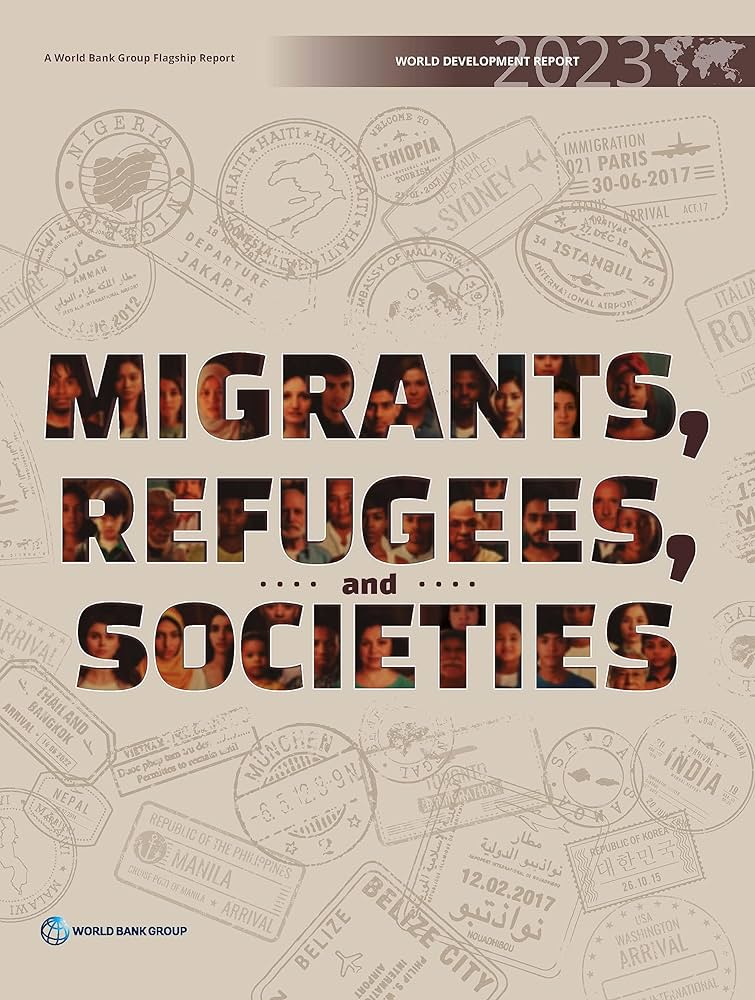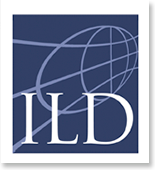The World Development Report 2023, “Migrants, Refugees, and Societies,” is a publication by the World Bank. It examines the role of migration in development and the effects of global migrant and refugee movements. According to the report, 184 million people, including 37 million refugees, reside outside their home countries.
Due to this reason, the report suggests a framework to enhance the developmental impacts of migration, demonstrating how it can help achieve the Sustainable Development Goals (SDGs). For example, It uses a “match and motive” matrix from labor economics and international law to examine the alignment of migrants’ skills with the needs of destination countries and the motivations behind migration.
Likewise, the report emphasizes the importance of effective migration management and coordinated policies. These measures can make migration beneficial for migrants, their families, and the communities hosting them. The report seeks to shift the perception from a ‘bad’ migrant and ‘good’ refugee dichotomy to a policy response that manages migration favorably for all parties involved.
Lastly, it offers a thorough overview of the challenges and issues faced by migrants and refugees, and their origin, transit, and destination countries, all within a new matrix. The report highlights the necessity for international cooperation to leverage migration as a developmental force and to address the challenges and opportunities for origin societies, migrants, refugees, and destination societies.
Key Findings and Insights:
- Demographic Shifts: underscores significant demographic changes that drive migration. These include ageing populations in high-income and middle-income countries and rapid population growth in low-income countries. These trends result in labor supply and demand imbalances, which increase migration flows.
- Benefits of Migration: highlights the positive impacts of migration on both origin and destination countries. Migrants can help with labor shortages, stimulate economic growth, and bring valuable skills and knowledge. Moreover, remittances sent by migrants can significantly improve the economies of their home countries.
- Challenges and Risks: recognizes the issues associated with large-scale migration. These include social and cultural integration, discrimination against migrants, and exploitation of migrant workers. Additionally, irregular migration and forced displacement present significant challenges for migrants and host countries.
- Match and Motive Matrix: presents a new framework for analyzing migration patterns and shaping effective policies. The “Match and Motive Matrix” considers two key factors:
- Motives: The reasons behind migration, such as economic opportunity, conflict, family reunification, or environmental factors.
- Matching: The extent to which migrants’ skills and qualifications align with the destination country’s labor market needs.
The World Development Report 2023 examines motives and matching, and policymakers can formulate targeted policies to optimize the advantages of migration and lessen potential risks.
Recommendations for Effective Migration Governance:
- Invest in Education and Skills Development: By equipping migrants with relevant skills and knowledge through education and training programs, their employability increases, promoting successful integration into the labor market.
- Promote Social Inclusion and Combat Discrimination: Fostering welcoming and inclusive communities with targeted initiatives and anti-discrimination policies can help migrants feel safe, valued, and able to contribute meaningfully to society.
- Strengthen International Cooperation: Collaboration between origin and destination countries is crucial for effective border management, data sharing, and the joint development of migration policies. These address shared challenges and promote mutually beneficial outcomes.
- Focus on Sustainable Development: Addressing the root causes of forced displacement, such as poverty, conflict, and climate change, through sustainable development initiatives can reduce forced migration and create conditions conducive to voluntary migration driven by positive aspirations.
The World Development Report 2023 ends with a summary of key policy suggestions derived from its analysis. These recommendations are categorized using the Match and Motive Matrix, offering specific recommendations for each type of cross-border movement. Thus, the report underscores that policy-making should be specific to each situation and stresses the importance of learning from other countries’ experiences.
Chapter 1. The Match and Motive Matrix
Emphasizes the significance of international migration, its potential to drive economic growth, and the necessity for well-crafted policies to regulate migration flows. It underlines the need for specific financial instruments and harmonization initiatives to enhance migration data consistency. This chapter also explores how demographic, economic, social, and political factors influence migration patterns and how migration could contribute to climate change adaptation. It concludes with policy suggestions suitable for various types of cross-border movements.
Chapter 2. The numbers: Understanding who moves, where to, and why
Examines the causes and trends of international migration, considering demographic, economic, social, and political factors. The chapter discusses migration’s potential advantages and difficulties, including addressing demographic disparities and labor market shortages, contributing to economic growth, encouraging social integration, and protecting vulnerable groups. However, it also draws attention to problems such as ageing populations, brain drain, social exclusion, and forced displacement. The chapter underscores the necessity for custom policy-making that considers the diverse factors affecting migration.
Chapter 3. The outlook: Changing patterns, needs, and risks
Delves into international migration’s economic and social impacts. It accentuates the potential of migration to boost economic growth, spur innovation, and reduce poverty, all while recognizing the related challenges. The chapter stresses the significance of proficient migration policies and institutions and explores the role of migration in climate change adaptation and mitigation. It underscores the necessity to balance economic growth and the protection of migrants’ rights and well-being.
Chapter 4. Migrants: Prospering—and even more so with rights
Examines migration governance, emphasizing the importance of policies and institutions in managing and addressing the needs and rights of migrants. It highlights how effective migration governance can fuel economic growth and development, address labor market shortages, spur innovation, and alleviate poverty in origin countries. Still, it acknowledges challenges, such as the need for comprehensive policies and international collaboration.
It delves into the role of technology in improving migration processes and offering migrants essential information while acknowledging concerns about digital exclusion and data privacy. Importantly, it underscores the value of learning from other nations and exchanging knowledge to enhance migration governance, providing a comprehensive analysis of its potential benefits and inherent challenges.
Chapter 5. Origin countries: Managing migration for development
Presents the Match and Motive Matrix, a tool for crafting migration policies that address the diverse needs of various cross-border movements. The chapter delves into how migrants’ skills align with the requirements of their destination countries and their reasons for migration. It scrutinizes different types of cross-border movements, including economic migration, family reunification, humanitarian migration, and irregular migration.
Distinct policy suggestions for each type of movement are offered, emphasizing the need for customised policies for each situation. The ability of these policies to stimulate economic growth while protecting migrants’ rights is underscored. Hence, the chapter stresses the crucial role of international cooperation in tackling migration issues, referring to frameworks such as the Global Compact for Safe, Orderly and Regular Migration and the Global Compact on Refugees.
Chapter 6. Destination countries: Maximizing gains through economic and social policies
Delves into the role of migrants in development. It demonstrates how migrants can drive economic growth in their home and host countries. Therefore, the chapter details how migration can help address labor shortages, spur innovation, and alleviate poverty. It also underscores the significant impact migrants can make on social development and gender equality.
The discourse stresses the necessity for policies that back migrants, foster their integration and well-being, and enable their contribution to their home communities’ development. Finally, the chapter explores how migration can enhance environmental sustainability, supporting those impacted by climate change while recognizing the complexities of climate-driven migration.
Chapter 7. Refugees: Managing with a medium-term perspective
Chapter 7 of the World Development Report 2023 stresses the importance of handling refugees with a medium-term view, highlighting international protection as a duty under international law. The chapter also underscores the necessity for shared responsibilities in managing the costs related to forced displacement and distressed migration.
Still, the report notes that some countries have implemented lightweight coordination structures to create a comprehensive socioeconomic approach to managing refugees. This approach involves collaborating with sectoral ministries to deliver services to refugees.
Additionally, the chapter suggests managing refugee support via line ministries, creating sustainable financing frameworks, and guiding refugees towards opportunities, including access to formal labor market jobs. It emphasizes the importance of inclusion, advocating for education, health, and social services to refugees through national systems, ensuring their comprehensive social participation.
Chapter 8. Distressed migrants: Preserving dignity
Addresses the role of economic migration in development. This section explores how economic migration can enhance development via remittances, the transfer of knowledge and skills, and entrepreneurship, while recognizing the challenges that economic migrants face, such as discrimination, exploitation, and restricted access to basic services and social protection.
The chapter emphasizes the crucial role of effective governance and institutions in maximizing the positive impacts of economic migration on development, all while protecting the rights and well-being of migrants. In this sense, it suggests potential partnerships between governments, civil society organizations, and the private sector to support the positive influence of economic migration on development. Additionally, it underscores the necessity for policies and interventions that encourage the social and economic inclusion of economic migrants, address the root causes of migration, and promote sustainable development in origin countries.
Chapter 9. Recommendations: Making migration work better
Offers crucial policy recommendations for the strategic management of cross-border movements, underscoring the necessity for international collaboration, improved data and evidence, appropriate financing mechanisms, and inclusion of overlooked perspectives in migration policy discussions.
The World Development Report 2023 advocates for managing distressed migration through bolstering governance, security, and economic opportunities in countries of origin, improving cooperation with destination and transit countries, and aiding voluntary return and reintegration of migrants. For instance, It recommends that destination countries offer complementary protection methods, adjust incentives for migrants and smugglers through legal avenues, guarantee fair and efficient asylum procedures, promote socioeconomic integration of migrants, and share costs and responsibilities with other nations.
Thus, transit countries are advised to enhance border management and protective capacity, increase cooperation with origin and destination countries, cater to the needs and rights of migrants in transit, and curb human trafficking and smuggling. Regional and global organisations are urged to standardise refugee protection practices, promote regional and global cooperation and dialogue, mobilise resources and expertise for managing migration, and monitor and evaluate migration policy impacts.
In conclusion, the report emphasises the need for strategic migration management to optimise benefits and reduce migration costs. It recognises the political hurdles and sensitivities associated with migration reform. Henceforth, it proposes ways to overcome them, such as utilising improved data and evidence, creating suitable financing tools, and engaging underrepresented voices in discussions.




